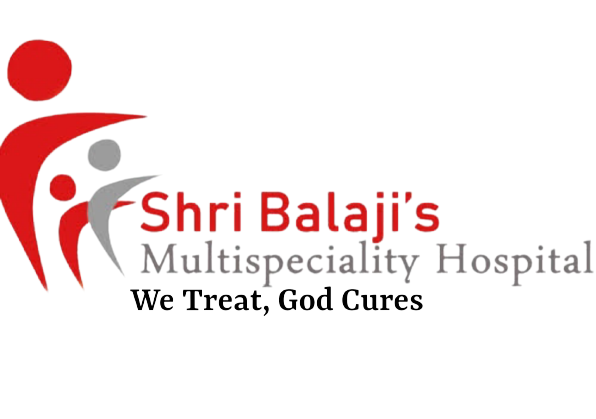Cardiology
Shri Balajis Hospital of Cardiology has top-ranked team of cardiologists’ providing diagnoses and treatment for many heart conditions, including many rare and complex disorders. The Hospital has been set up with a holistic approach to heart care based on ethics, quality care and professional support, backed by latest technology. Doctors specialise in diagnosis and providing treatment for various cardiac ailments including heart valve disease, coronary artery disease, congenital heart disease in adults and congenital heart defects in children, such as Ebstein’s anomaly and hypoplastic left heart syndrome, hypertrophic cardiomyopathy, heart failure and heart rhythm disorders (arrhythmias).
Well staffed by a team of internationally trained doctors and other staff, the institute offers well defined protocols and individualized care to the people suffering from cardiac problems.
The mission of Shri Balajis Hospital of Cardiology is to save every heart. We aim to achieve this with a team of well qualified & experienced invasive and non invasive Cardiologists, Cardio-thoracic Cardiac anesthetists, physicians, radiologists and trained nurses & technical staff. These eminent and dedicated medical professionals provide international standards of care, under one roof- ensuring that comprehensive cardiac care is provided to all.

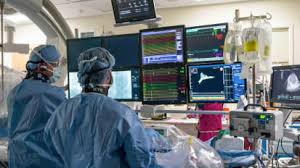
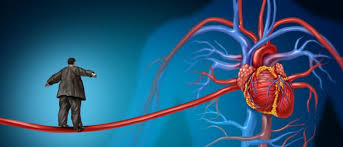
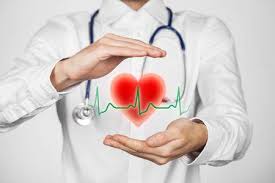
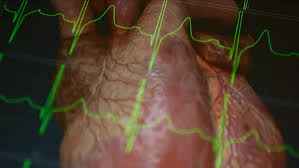
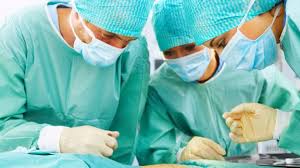
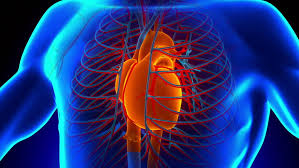
CARDIOLOGY
Shri Balajis Hospital of Cardiology has top-ranked team of cardiologists’ providing diagnoses and treatment for many heart conditions, including many rare and complex disorders. The Hospital has been set up with a holistic approach to heart care based on ethics, quality care and professional support, backed by latest technology. The Team of Doctors specialise in diagnosis and providing treatment for various cardiac ailments including heart valve disease, coronary artery disease, congenital heart disease in adults and congenital heart defects in children, such as Ebstein’s anomaly and hypoplastic left heart syndrome, hypertrophic cardiomyopathy, heart failure and heart rhythm disorders (arrhythmias).
Well staffed by a team of internationally trained doctors and other staff, the institute offers well defined protocols and individualized care to the people suffering from cardiac problems.
The mission of Shri Balajis Hospital of Cardiology is to save every heart. We aim to achieve this with a team of well qualified & experienced invasive and non invasive Cardiologists, Cardio-thoracic surgeons, Cardiac anesthetists, physicians, Radiologists and trained nurses & technical staff. These eminent and dedicated medical professionals provide international standards of care, under one roof- ensuring that comprehensive cardiac care is provided to all.
TRANSRADIAL INTERVENTIONAL CARDIOLOGY TECHNIQUE
TRANSRADIAL CATHETERISATION
Latest clinical advancements have devised an approach for performing cardiac catheterization by using the radial artery in the wrist instead of the femoral artery in the groin to gain access to arteries leading up to and into the heart.
Termed as ‘Transradial Access’ this gentler approach has a number of advantages over the femoral cardiac catheterization procedure.
What is Cardiac Catheterization?
 Cardiac catheterization is a procedure used to diagnose and treat conditions of the heart. During a transradial catheterization procedure, a long, thin tube called a catheter is inserted into the radial artery of the arm and guided to the heart. When the catheter reaches the heart, it can be used to:
Cardiac catheterization is a procedure used to diagnose and treat conditions of the heart. During a transradial catheterization procedure, a long, thin tube called a catheter is inserted into the radial artery of the arm and guided to the heart. When the catheter reaches the heart, it can be used to:
- Detect any blockages or abnormalities
- Take a blood or muscle sample
- Measure blood pressure and oxygen levels
- Repair or replace heart valves
- Detect and repair congenital heart defects
- Perform an angioplasty
- Perform a balloon valvuloplasty
- Correct arrhythmia
According to recent studies it has been estimated that India, with more than 1.2 billion people, is estimated to account for 60 percent of heart disease patients worldwide and out of the same atleast 82 million have some form of established cardiovascular disease. In many cases, people who experience chest pain or who experience an emergent event-such as a heart attack- undergo cardiac catheterization to determine what level of heart damage or disease may be. The procedure also may be used to open blocked arteries that are limiting blood flow through the heart and preventing oxygenated blood from travelling properly to the body. Cardiac Catheterization is performed on more than one million Indians each year.
What is Transradial Coronary Catherization?
For many years, the preferred entry point for a cardiac catheterization has been in the groin area through the femoral artery. However, an innovative option is called radial catheterization, which involves insertion of the catheter through the radial artery in the wrist.
In a typical cardiac catheterization, a cardiologist inserts a small thin tube into the femoral artery near the groin and advances it into the aorta to assess cardiac function and the coronary arteries. The same procedure, when it is performed through the wrist via the radial artery, is called transradial cardiac catheterization.
The transradial approach reduces the risk of bleeding, significantly speeds recovery, and improves patient comfort.
What are the advantages of the ‘Transradial Access’?
The main advantages are:
- Faster recovery
- Easier site access-wrist
- Less bleeding
- No restriction of movement-no compulsion of lying on your back still for hours
- Less pain
- Fewer complications
- Lesser chances of infection
- No requirement of blood transfusion
How does transradial access benefit older patients?
This technique is most beneficial for older patients. Patients with the following complications can benefit the most:
- Patients with respiratory and pulmonary issues- who have cough and breathing problems.
- Patients with spine problems- backpain- who have difficulty in lying down in one position for hours.
- Patients who are obese
How does the transradial access benefit the women?
Indian women are by majority conservative and refrain from showing their private parts for any reason. The femoral access is through the groin region, thus making women apprehensive about the cardiac catheterization. However the transradial access through the wrist empowers the women-it not only provides her a better access route but also gives her the comfort & privacy.
In Shri Balajis Hospital, due to awareness, women now opt for the ‘Transradial Access’ and benefit from the same.
How often are patients treated for their cardiac problems through the ‘Transradial Access’?
In Shri Balajis Hospital, 90% of the cardiac interventions are performed by the state- of-the-art transradial procedure. The entire cardiology department is skilled to perform all tranradial coronary interventions.
Can all patients have transradial access cathterisation?
Unfortunately, not all patents can have radial artery cathterisation. To be a candidate, patients must have good blood supply to their hands, through both the radial artery and the ulnar artery. The blood supply from both arteries has to be good.
STREATMENT AND PROCEDURES
Interventional Cardiology
- Coronary & Radial Angiography
- Coronary Angioplasty or Stenting
- Carotid Angioplasty
- Peripheral Angioplasty and Stenting
Percutaneous Valvular Interventions
- Ballon Mitral Valvulotomy
- Aortic Valvulotomy
- Percutaeneous Aortic Valve Replacement
- Percutaneous Aortic Aneurysm Repair by Stent Grafts
- Septal alcohol ablation in Hypertrophic Cardiomyopathy
Electrophysiology:
- Electrophysiology studies
- Radio frequency ablation for supra ventricular and ventricluar tachyarrhythmia
- Pacemaker implantation
- ICD and combo device implantation
Non Invasive Cardiology:
- ECG
- Stress Cardiology
- TMT
- Holter Monitoring
- Colour Doppler
Trauma:
- Emergency/Traumatic Thoracic & Vascular Surgeries
TECHNOLOGY
Cardiac Catheterisation Lab – A catheterization laboratory or cath lab is an examination room in a hospital or clinic with diagnostic imaging equipment used to visualize the arteries of the heart and the chambers of the heart and treat any stenosis or abnormality found. Cardiac interventions such as angiography, angioplasty and pacemaker implantations are routinely performed in the same.
4D Echocardiography (ECHO) – Latest technology in echocardiography which is able to provide 3D reconstructions, as well as a real-time rendering (4D) of the heart. This machine gives the ability to deliver increased volume size, resolution and volume rate of the heart. With the 4D Stress applications, physicians can view the entire ventricle under stress. Such high-quality images enable us to use this machine for screening as well as diagnostic purposes to detect/rule out heart disease.
CT Angiography – A Coronary computed tomography angiogram (CTA) uses advanced CT technology, along with intravenous (IV) contrast material (dye), to obtain high-resolution, 3D pictures of the moving heart and great vessels. It can be used to provide early diagnosis of heart disease and blockages in the heart.
Contact a Doctor

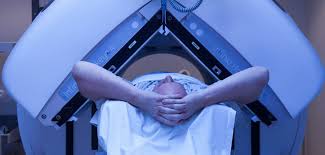
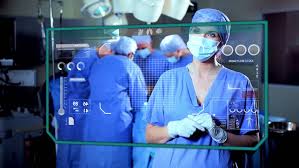
Contact us
Call Us
09354740267
Email Us
shribaljihospital99@gmail.com
Our Location
Sector No. 9-10, Basai Chowk, Basai Rd, Gurugram, Haryana 122001
